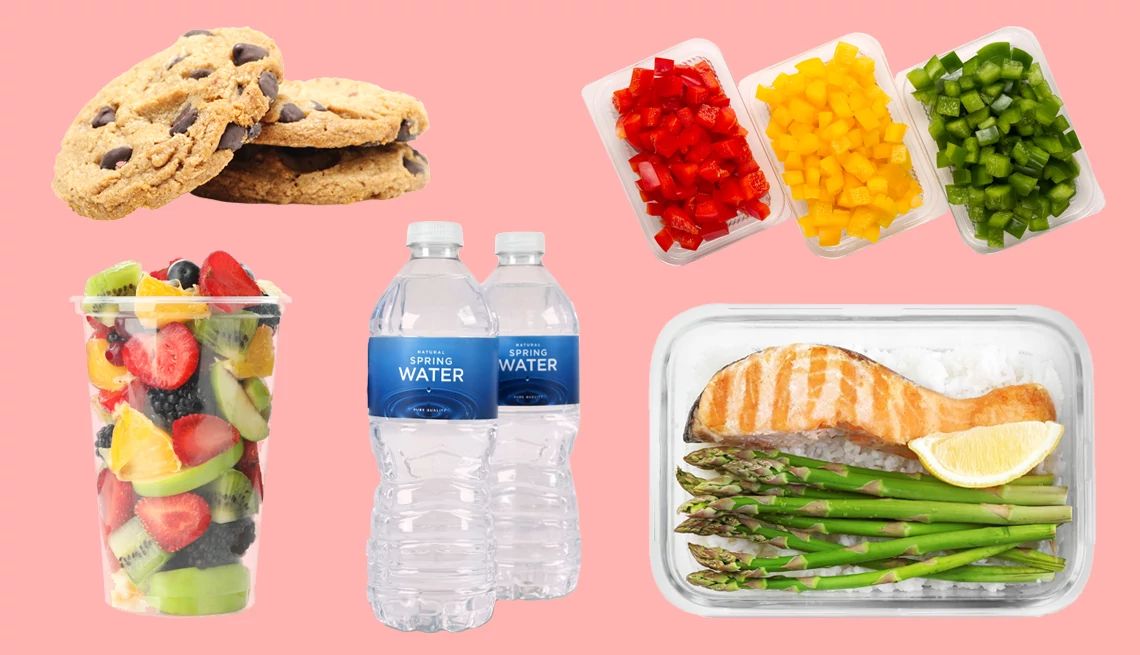AARP Hearing Center


Inflation isn’t the only thing pushing up the grocery bills of households across the country. A lack of awareness of the spending traps is costing them too.
The supermarket is where you go for the ingredients to prepare an affordable meal. But it’s also a place where you can overspend if you aren’t careful. That’s particularly true if you’re squarely focused on saving time and effort. “When it comes to groceries, convenience costs,” says Brian Vines, deputy editor of special projects at Consumer Reports. “You can expect to pay a premium when supermarkets help you cut corners in the kitchen.”
Money wasters are lurking throughout the supermarket, including these 10:
1. Loading the cart up with processed food
Time-strapped consumers love the convenience of throwing a frozen pizza in the oven or a burrito in the microwave when they need a quick bite, but relying on processed food to save time will cost you.
“You don’t have time to make a meal, so you buy something you can pop in the oven, but you are paying a lot more for that,” says Trae Bodge, a money expert and founder of TrueTrae.com.
That’s not to mention the impact processed foods can have on your health. Research published this spring in the journal BMJ found people who had a higher intake of processed foods had a higher risk of dying early, compared with people who ate the least amount of processed foods. Instead of buying a frozen pizza or another processed meal, Bodge encourages cost-conscious shoppers to buy individual ingredients and make meals from scratch, which are cheaper and often healthier.
2. Buying snack packs
From cookies to nuts, it’s easy to find snack packs in the grocery store. They’re convenient, without a doubt, but they’re also more expensive than buying a larger quantity and portioning it out yourself.
3. Opting for precut veggies and fruits and prepared meals
Precut produce is a time saver, but it’s also a money waster. Supermarkets attach a premium to these items because they’re doing the work of cutting and preparing the foods for you. “The last time I was at the grocery store, a woman fighting arthritis asked for my help shucking some corn. Instead of opting for the more expensive preshucked, cellophane-wrapped corn, she got a 3-for-$1 deal and a little conversation just [by] asking [for my help],” says Vines.






































































More From AARP
99 Great Ways to Save 2024 Edition
Make your money work harder for you — and save on entertainment, health care and groceries
Tired of Overpaying at the Grocery Store? Here’s How to Break the Cycle
6 frugal ways to save money on your grocery billStaples You Should Always Buy on Sale
If they store well or freeze well, jump at the chance to buy at a discountSave Money By Buying Food That's Not Perfect
Small blemishes can lead to big food savings
Recommended for You